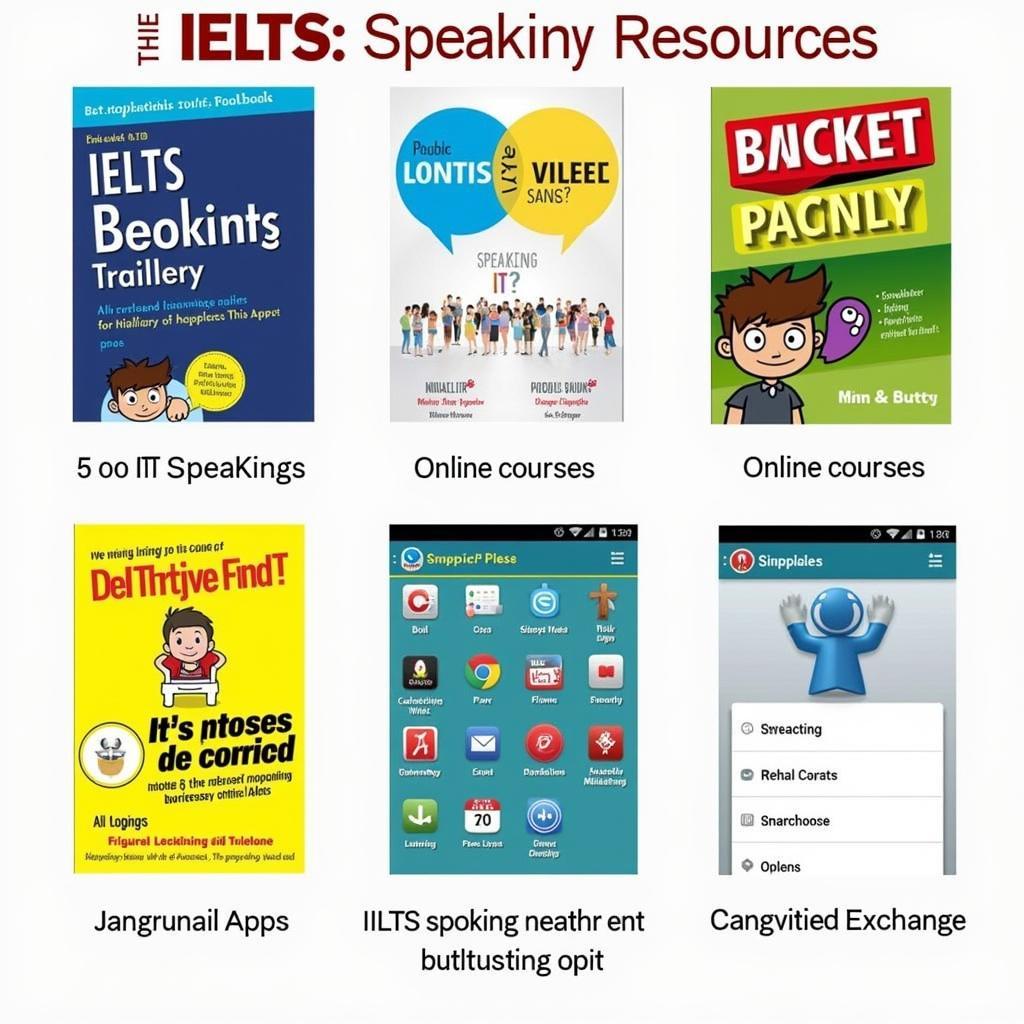Giỏ hàng hiện tại chưa có sản phẩm nào!

Improve Your IELTS Speaking Skills: The Ultimate Guide
Achieving your desired IELTS Speaking score requires more than just good English. It demands a strategic approach to understanding the test format, mastering effective communication techniques, and building your confidence. This comprehensive guide will equip you with practical tips and proven strategies to significantly improve your IELTS Speaking skills and ace the exam.
 IELTS Speaking Test
IELTS Speaking Test
Understanding the IELTS Speaking Test
The IELTS Speaking test assesses your ability to communicate effectively in English across three different parts:
Part 1: Introduction & Interview (4-5 minutes)
This part involves general questions about yourself, your interests, and familiar topics like work, hobbies, or daily routines.
Part 2: Individual Long Turn (3-4 minutes)
You will receive a cue card with a specific topic and prompts. You have one minute to prepare and then need to speak for 1-2 minutes on the given topic.
Part 3: Two-way Discussion (4-5 minutes)
This part involves a more in-depth discussion related to the topic in Part 2. The examiner will engage you in a conversation, asking you to express and justify your opinions, analyze viewpoints, and speculate on future possibilities.
Key Strategies to Improve Your Speaking Skills
1. Expand Your Vocabulary:
A strong vocabulary is crucial for achieving a higher score. Make a conscious effort to learn new words and phrases, particularly those related to common IELTS topics.
2. Focus on Fluency and Coherence:
Speak naturally and connect your ideas smoothly using linking words and phrases. Don’t be afraid to pause briefly to gather your thoughts. Practice speaking at length on various topics to improve fluency.
3. Enhance Your Grammatical Range and Accuracy:
Use a variety of grammatical structures accurately to demonstrate your language proficiency. Regularly review and practice different tenses, sentence structures, and grammatical rules.
4. Develop Pronunciation and Intonation:
Clear pronunciation and natural intonation are essential for effective communication. Pay attention to stress, rhythm, and intonation patterns. Listening to native speakers and recording yourself speaking can help you identify areas for improvement.
 Practicing for the IELTS Speaking Test
Practicing for the IELTS Speaking Test
Specific Tips for Each Part of the Test
Part 1:
- Provide detailed answers beyond simple “yes” or “no” responses.
- Use personal examples and anecdotes to illustrate your points.
- Show enthusiasm and engage with the examiner’s questions.
Part 2:
- Utilize the one-minute preparation time effectively to jot down key ideas.
- Structure your talk logically with a clear introduction, body, and conclusion.
- Don’t worry about covering every point on the cue card; focus on delivering a well-structured and fluent response.
Part 3:
- Express your opinions clearly and support them with reasons and examples.
- Listen attentively to the examiner’s questions and respond relevantly.
- Don’t hesitate to ask for clarification if needed.
Overcoming Speaking Anxiety
Nervousness is natural, but it shouldn’t hinder your performance. Implement these techniques to manage anxiety:
- Practice, practice, practice: The more you practice, the more confident you’ll become.
- Record yourself speaking: This will help you identify areas for improvement and track your progress.
- Visualize success: Imagine yourself speaking confidently and fluently during the test.
- Focus on your message: Concentrate on communicating your ideas effectively rather than worrying about minor mistakes.
Resources for IELTS Speaking Preparation
- Official IELTS website: Provides valuable information about the test format, sample questions, and assessment criteria.
- IELTS preparation books and online courses: Offer structured learning materials, practice tests, and expert guidance.
- Language exchange partners: Practicing with a native speaker or fellow IELTS candidates can significantly boost your confidence and fluency.
 Resources for IELTS Speaking Preparation
Resources for IELTS Speaking Preparation
Conclusion
Improving your IELTS Speaking skills requires a combination of targeted practice, effective strategies, and a positive mindset. By following the tips and utilizing the resources outlined in this guide, you can significantly enhance your communication skills and achieve your desired IELTS score. Remember, consistency and perseverance are key!
FAQs
1. How can I improve my fluency if I don’t have anyone to practice with?
2. What are some common mistakes to avoid in the IELTS Speaking test?
3. How important is it to use idioms in the Speaking test?
4. What happens if I don’t understand the examiner’s question?
5. Can I use a dictionary during the Speaking test?
Need More Help?
For personalized support and expert guidance on your IELTS journey, contact us at Số Điện Thoại: 0372960696, Email: tuyet.sixt@gmail.com or visit us at 260 Cầu Giấy, Hà Nội. Our team of experienced IELTS instructors is available 24/7 to answer your questions and provide tailored solutions to help you achieve your goals.